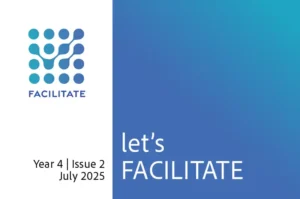Striking a balance on good governance
On May 10, 2023, FACILITATE was presented by Prof. Johanna Blom, Deputy coordinator of the FACILITATE project, at the Governance of Medical AI Conference in Hong Kong (9-11 May) organized by the Centre for Medical Ethics and Law (CMEL).
CMEL develops new ideas and solutions in response to the big ethical, legal and policy questions of medicine and health, bringing together bioethicists, academic lawyers, medical scientists, and other scholars to conduct cutting edge bioethical and legal research and contribute to policy development in flagship areas like digital health and emergent technologies, mental health and capacity, and population and global health.
The central theme of the conference was the regulatory governance of medical devices with machine learning/artificial intelligence capabilities and related application in genomic medicine given that they are becoming increasingly risk-based, context-specific, case-sensitive, decentralized, collaborative, and – in terms of its epistemic constituents – pluralistic. With focus on governance policies of the National Medical Products Administration of China, the European Medicines Agency and the US Food & Drug Administration, this international conference considered regulatory and ethical challenges for developers and users operating within the architecture of the Internet of Medical Things.
Topics ranged from Trends in Medical AI Governance and Medical AI and Data Governance to Collaboration and Participation in Ethical Governance. FACILITATE was present in that it represents an innovative approach to governance of the return of clinical trial data and the reuse of clinical trial data for future research purposes.
Prof. Blom stressed that within this context an important challenge is capturing the dynamic interaction among various values, characteristics, and principles adhered to by the various stakeholders as well as by the quality of relationships among the stakeholders, both at the start, during, and after the clinical trial. If participants, physicians, and sponsors collectively agree that decisions are consistently made with accountability and transparency, while accounting for values such fairness, adherence to standards, and justice, then it means that a context of transparency and trust has been created.



